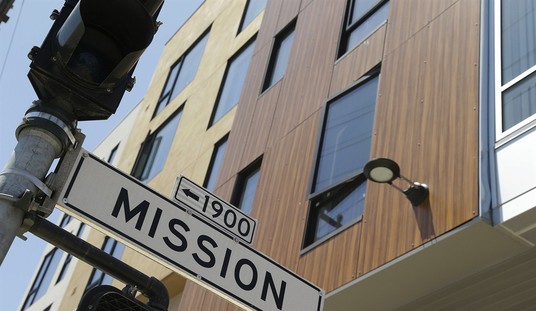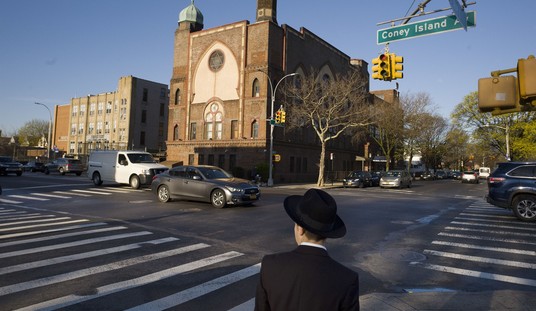The Supreme Court is in no rush to either consider challenges to ObamaCare or consolidate them, at least not at the moment. Earlier today, the court passed on an opportunity to expedite the appeal process, turning down Virginia’s Ken Cuccinelli, despite his appeal for a fast-track review on constitutional grounds:
The Supreme Court rejected a call Monday from Virginia’s attorney general to depart from its usual practice and put review of the health care law on a fast track. Instead, judicial review of President Barack Obama’s signature legislation will continue in federal appeals courts.
The justices turned down a request by Virginia Attorney General Ken Cuccinelli, a leading opponent of the law, to resolve questions about its constitutionality quickly. The Obama administration opposed Cuccinelli’s plea.
Only rarely, in wartime or a constitutional crisis, does the court step into a legal fight before the issues are aired in appellate courts. Hearings already are scheduled in May and June in three appeals courts.
The case still could reach the high court in time for a decision by early summer 2012.
The court had an opportunity to simplify matters ahead of time by accepting the expedited appeal and consolidating the cases. Their decision to stay out of the process at this time may mean that they are interested in hearing from the appeals courts on the wider variety of arguments already in play, rather than focus mainly on the Virginia case. It also may indicate that the justices aren’t concerned about the appeals taking a very long time to get to them anyway; as the AP notes, they’ll still probably get at least one of the cases in the 2011-12 term, giving them plenty of time to rule on the law before much of it takes effect.
The report also speculates that Elena Kagan took part in the deliberations to reject the expedited appeal. That’s based on the lack of announcement of a recusal rather than any direct indication, as these rejections rarely produce any statement from the court. If Kagan didn’t recuse herself from this decision, it would hint that she won’t recuse herself from any ObamaCare deliberations despite her role as Solicitor General for Obama and the possibility that she gave the administration legal advice on crafting and defending the law. That’s not exactly a surprise either; only Kagan can force herself into a recusal, and the chance to weigh in on one of the most critical Supreme Court decisions in decades is going to outweigh any qualms over conflicts of interest.
Update: I just received an e-mail statement from AG Ken Cuccinelli’s office declaring the decision “disappointing … not surprising”:
Virginia Attorney General Ken Cuccinelli reacted today to the United States Supreme Court’s decision not to expedite Virginia’s lawsuit against the federal health care law and its mandate to force individuals to buy health insurance:
“We asked the United States Supreme Court for expedited review of our lawsuit because Virginia and other states are already spending huge sums to implement their portions of the health care act, businesses are already making decisions about whether to cut or keep employee health plans, and citizens are in limbo until the Supreme Court rules. Asking the court to expedite our lawsuit was about removing this crippling and costly uncertainty as quickly as possible. We were gratified that both Republicans and Democrats in Virginia supported the effort to expedite.
“The Supreme Court rarely expedites cases under its Rule 11. Expediting our case would have been the exception and so, although disappointing, this is not surprising.
“We look forward to making our arguments in the U.S. Fourth Circuit Court of Appeals on the morning of May 10th here in Richmond. This case’s logical end point is the Supreme Court. It will simply have to make its way through the Fourth Circuit first,” Cuccinelli said.
My guess is that the Supreme Court doesn’t want to draw any unnecessary fire for political motivations in its ultimate decision on the merits, and with the cases almost certainly moving quickly enough as it is, they can afford to wait for the processes to play out.








Join the conversation as a VIP Member